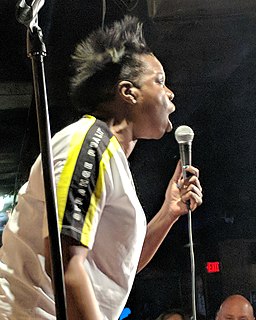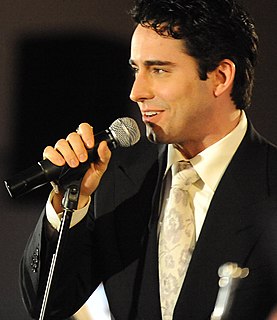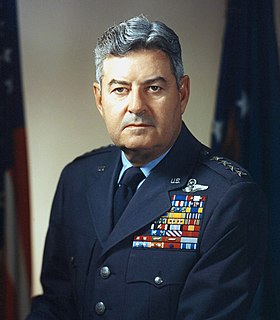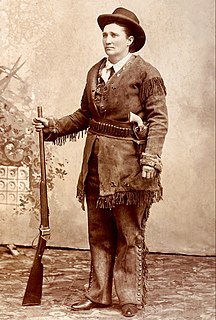A Quote by Alice Sebold
What I think was hardest for me to realize was that he had tried each time to stop himself. He had killed animals, taking lesser lives to keep from killing a child
Related Quotes
Once, I discovered the skulls of two impala rams, their horns locked into an irreversible figure-of-eight; the two animals had been trapped in combat, latched to each other during the battle of the rut. The harder they had pulled to escape from each other, the more intractably stuck they were, until they had fallen exhausted, to their knees, in an embrace of hatred that had killed them both.
Years ago someone wrote [about me]: 'She characterizes Molly Weasley as a mother who is only at home looking after the children.' I was deeply offended, because I until a year before that had also been such a mother who was at home all the time taking care of her child [...] What has lesser status and is more difficult than raising a child? And what is more important?
One time when I played Australia I had a death threat, and they tried to keep it from me, but I found out. They had all this security backstage, outside the dressing room. I said, "What happens when I walk into the spotlight. I'm a target. So I really don't need all this. You guys can go out and sit in the audience. I think you'd be a lot more useful there." If somebody really wants to do you in nothing will stop them. It's proven by John F.Kennedy, the Pope and Ronald Reagan.
Think about back in the day when we had Archie Bunker, 'The Jeffersons.' We had stuff to sit down and share and laugh at. The Internet has made it so we don't have to sit together anymore. It's so self-absorbed. No one has to talk to each other anymore, and people don't realize that that is killing us.
I had more trouble than I had a sense of utility or satisfaction. But it served to occupy me and to keep me occupied in a field that I love - which was cinema - while I was waiting to realize the film that I wanted to do, which was Once Upon a Time in America, which took ten years of thinking and working to realize.
She had lived in that house fourteen years, and every year she had demanded of John that she be given a pet of some strange exotic breed. Not that she did not have enough animals. She had collected several wild and broken animals that, in a way, had become exotic by their breaking. Their roof would have collapsed from the number of birds who might have lived there if the desert hadn't killed three- quarters of those that tried to cross it. Still every animal that came within a certain radius of that house was given a welcome-the tame, the half born, the wild, the wounded.
Occasionally, on screen, Barbara [Stanwyck] had a wary, watchful quality about her that I've noticed in other people who had bad childhoods; they tend to keep an eye on life because they don't think it can be trusted. After her mother was killed by a streetcar, she had been raised in Brooklyn by her sisters, and from things she said, I believe she had been abused as a child. She had lived an entirely different life than mine, that's for sure, which is one reason I found her so fascinating. I think her early life was one reason she had such authenticity as an actress, and as a person.
I think you couldn't do this role or you couldn't be Frankie Valli himself unless you had a natural falsetto. And I had sort of discovered it by accident as a child or a young adult when you realize you have a special skill that you don't really have any use for you, and you just take it out at parties or to amuse your friends or to annoy your girlfriends.
'The Story of Us' is about running into someone I had been in a relationship with at an awards show, and we were seated a few seats away from each other. I just wanted to say to him, 'Is this killing you? Because it's killing me.' But I didn't. Because I couldn't. Because we both had these silent shields up.
But I felt like Pablo Escobar felt like he was an honorable businessman. And when he killed people, I think he felt he did it because they were honorable. That they were liars and were trying to cheat him. I don't think he had a lot of respect for the politicians in Columbia at the time, so he had quite a lot of fun killing them.






































